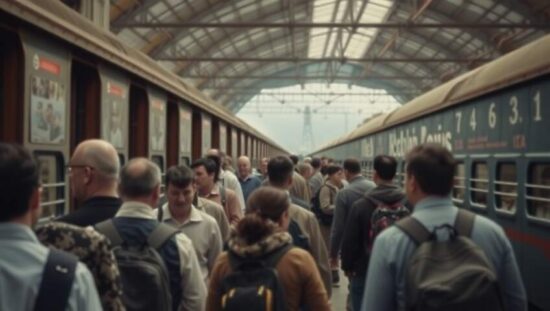The German national railway, Deutsche Bahn (DB), is enacting a significant and potentially politically charged, shift in its pricing strategy. For the first time in over six years, ticket prices will remain stable during the upcoming winter timetable change on December 15th, according to sources within the railway reported by Bild am Samstag. This decision marks an early, highly visible move by the newly appointed CEO, Evelyn Palla, who assumed leadership on October 1st, succeeding Richard Lutz.
The price freeze arrives amid sustained public and political scrutiny of DB’s operational performance. Persistent delays, frequent disruptions and sprawling infrastructure projects plaguing the long-distance rail network have drawn severe criticism, questioning the company’s efficiency and ability to deliver reliable service. The decision to halt price increases is widely interpreted as an attempt by Palla to appease a frustrated electorate and demonstrate a commitment to restoring public trust.
However, the move also raises critical questions about the financial viability of DB. Maintaining stability in ticket prices while addressing the substantial infrastructural deficits and ongoing operational challenges demands significant investment, the source of which remains unclear. Critics suggest that the freeze could be a short-term political maneuver, potentially delaying necessary, albeit potentially unpopular, long-term pricing adjustments.
Furthermore, the announcement comes at a precarious moment for the German government, which faces mounting pressure to provide further financial support to DB. The price freeze could be viewed as a calculated move to increase leverage in upcoming negotiations, placing a renewed burden on taxpayers. The long-term sustainability of this policy and its broader implications for DB’s financial health are currently under intense observation from both industry analysts and policymakers.





